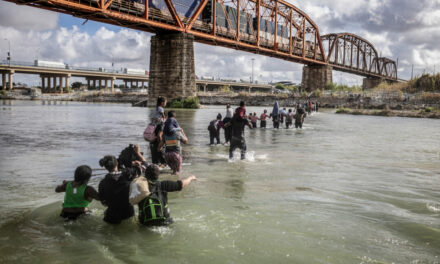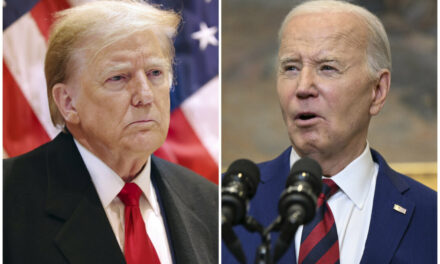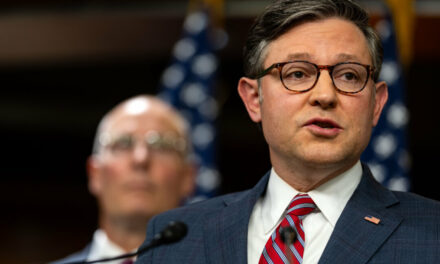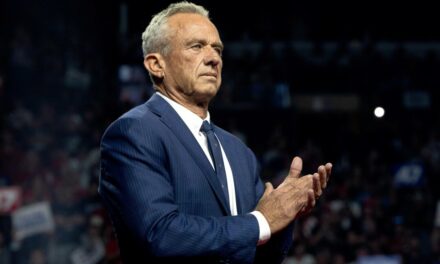We support our Publishers and Content Creators. You can view this story on their website by CLICKING HERE.
The president’s busy diplomatic schedule will kick off this weekend in his hometown, where he will host the leaders of Australia, India, and Japan.
WASHINGTON—In a whirlwind of diplomatic activity, President Joe Biden will spend the weekend and the next week engaging in high-stakes meetings with world leaders as he seeks to solidify his foreign policy legacy before leaving office.
Biden is set to host the Quad leaders’ summit in Wilmington, Delaware on Sept. 21 before heading to New York for the 79th session of the United Nations General Assembly, which starts on Sept. 24. Following that, he will welcome Ukrainian President Volodymyr Zelenskyy to the White House on Sept. 26 to discuss the ongoing war with Russia.
Meanwhile, Biden is still working to encourage Israel and Hamas to reach a ceasefire agreement before the end of his term.
Biden’s busy diplomatic schedule will kick off this weekend with the Quad Summit in his hometown, where he will meet with leaders from Australia, India, and Japan.
Former President Donald Trump previously increased the importance of the Quad partnership by raising the engagements to the foreign ministerial level. After assuming office, Biden elevated the partnership to the leaders’ level as part of his strategy to strengthen alliances throughout the Indo-Pacific region to counter China.
In 2021, he hosted the first Quad leaders summit.
The Quad was established in response to the 2004 Indian Ocean tsunami to coordinate humanitarian assistance and disaster relief. Over the years, it has evolved into a partnership focused on collaboration in many other areas, including health security, maritime security, high-quality infrastructure, critical and emerging technologies, clean energy, and cybersecurity.
Mira Rapp-Hooper, White House National Security Council senior director for East Asia and Oceania, says she believes the Quad partnership will endure under the next administration, regardless of the November election’s outcome, highlighting its bipartisan support.
China will likely be high on the summit’s agenda this year, according to White House National Security Council spokesman John Kirby.
He stated during a press briefing on Sept. 18 that the leaders are expected to discuss “the challenges that still exist in the region caused by aggressive PRC military action, for instance; unfair trade practices; and tensions over the Taiwan Strait.”
Kirby said it would be “irresponsible” if the leaders failed to discuss these challenges, stressing that the Quad countries “have a common understanding about the challenges” posed by the Chinese communist regime.
U.S. President Joe Biden, Australia’s Prime Minister Anthony Albanese, Japan’s Prime Minister Fumio Kishida, and India’s Prime Minister Narendra Modi hold a quad meeting on the sidelines of the G7 Leaders’ Summit in Hiroshima on May 20, 2023. Kenny Holston/AFP via Getty Images
Ahead of the summit, tensions in the South China Sea have escalated due to Beijing frequently ramming Philippine ships and blasting them with water cannons.
Rapp-Hooper said the United States expects “strong language” against China in the Quad’s joint statement.
According to the White House, this will be the Quad leaders’ sixth meeting during Biden’s presidency and their fourth in person. The summit will be held at Archmere Academy, the private Catholic school Biden attended. It will feature a leaders-level meeting, the Cancer Moonshot event, and a private dinner.
Vice President Kamala Harris will not join these meetings, the White House said.
Final Speech
Following the Quad summit, Biden will travel to New York City, where he will deliver his final address as president before the United Nations General Assembly (UNGA) on Tuesday.
The crucial meeting comes at a rough time for Biden, as the wars in Ukraine and Gaza remain unresolved.
Trump, the Republican presidential nominee, has repeatedly claimed that neither of these conflicts would have occurred under his presidency.
Regarding Ukraine, Biden will likely claim credit for U.S. support for the war-torn nation, according to Jon Alterman, senior vice president of the Center for Strategic and International Studies (CSIS).
Biden views his efforts to unite allies against Russia’s invasion of Ukraine as his core legacy, which will likely influence his meetings in New York next week, Alterman told reporters during a press briefing on Sept. 17.
“He feels this issue deep in his bones,” he added. “He’s very proud of the creativity the U.S. has demonstrated, mustering a wide variety of allies through overt and covert methods to support the Ukrainians.”
U.S. President Joe Biden and Ukrainian President Volodymyr Zelenskyy (L) shake hands after signing a bilateral security agreement on the sidelines of the G7 Summit hosted by Italy in the Apulia region on June 13, 2024. Mandel Ngan/AFP via Getty Images
On the afternoon of Sept. 24, the president will also host a summit to address synthetic drug threats, a U.S.-led initiative to mobilize support among countries to disrupt the global supply chain of illicit fentanyl, according to the White House.
After his meetings in New York, Biden will return to the White House for another crucial meeting on Sept. 26.
“I’m looking forward to hosting my friend President Zelenskyy of Ukraine next week at the White House,” Biden said on X on Sept. 19.
“During his visit, I’ll reaffirm America’s commitment to supporting Ukraine as it defends its freedom and independence.”
Peace Deal
Amid the packed diplomatic schedule, the White House has stated that it is working “diligently” to secure a ceasefire agreement between Israel and Hamas, one of the president’s primary goals before the end of this term.
Hamas leader Yahya Sinwar remains the main obstacle in reaching a deal, Kirby told reports on Sept. 20.
Following the recent pager and walkie-talkie explosions in Lebanon, many have speculated that a peace deal is out of reach for the White House. A recent Wall Street Journal report suggested senior U.S. officials have privately admitted that they won’t expect a ceasefire agreement before the end of Biden’s term.
However, the president is still not pessimistic about the prospects for an agreement.
“If I ever say it’s not realistic, then I might as well leave,” he told reporters on Sept. 20 before starting his cabinet meeting. “A lot of things don’t look realistic until we get them done. We have to keep at it.”
Biden’s approval ratings have suffered, in part due to his handling of foreign affairs. The chaotic withdrawal of U.S. troops from Afghanistan in the summer of 2021 marked a turning point in his presidency, causing his approval rating to fall. He also faced criticism for his handling of wars in Ukraine and Gaza.

 Conservative
Conservative  Search
Search Trending
Trending Current News
Current News 







